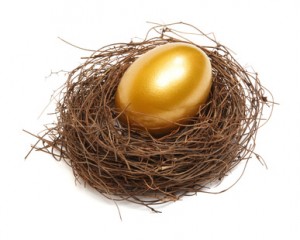 There was a time when nobody had doubts about the value of owning a home. It was considered an incredible long-term investment and ideal for retirement. Today we know that real estate isn’t as safe as we once thought it was, at least as a short-term investment, and Americans, young and old, are leery of sinking their life savings into a home as an investment. Knowing this, will owning a home help you retire? That depends on a number of factors, including when you purchase the home.
There was a time when nobody had doubts about the value of owning a home. It was considered an incredible long-term investment and ideal for retirement. Today we know that real estate isn’t as safe as we once thought it was, at least as a short-term investment, and Americans, young and old, are leery of sinking their life savings into a home as an investment. Knowing this, will owning a home help you retire? That depends on a number of factors, including when you purchase the home.
If you buy the home in advance of retirement, when you have the time to build equity, then yes, the home may help you retire. If you are thinking of buying your first home in retirement, there could be problems.
Timing
Ideally, a home purchased to help you financially during retirement is one that will be paid off by the time you bring in the shingle. Unfortunately, that doesn’t happen for many homeowners. Forbes.com claims that although almost half of Americans aged 50 to 70 say they plan on using their home’s equity to fund their retirement, 37 percent of them are not anywhere near having their mortgages paid off.
That’s OK, though, according to Sydney Lagier, former certified public accountant. “With interest rates so low right now,” she says, “a mortgage can be an excellent hedge against inflation.”
Lagier claims that inflation is expected to soar in the near future, eroding the worth of today’s dollar. While this hurts those with savings and investments, it does the opposite with debt.
“A mortgage enables you to lock in today’s home price, but pay for it with tomorrow’s inflated dollars,” Lagier claims.
If inflation is a concern, Lagier suggests taking the money that you would have used to pay off the mortgage prior to retirement and investing it in Treasury Inflation-Protected Securities.
Reverse Mortgage
If you have paid off the mortgage, or at least a significant chunk of it, pre-retirement, there’s always the reverse mortgage to fall back on should you need to tap your equity. Of course, you won’t realize as much as you would were you to sell the home, but it’s “money you get to use while you are alive and pay back when you’re dead,” according to Lagier.
Offered to Americans 62 years of age or older, the reverse mortgage doesn’t come without risks. Although you won’t be making house payments, you’ll still be required to keep up the property tax payments, HOA fees, and homeowners insurance. Default on any of those and you risk foreclosure. Which is why, according to Lagier, the reverse mortgage is considered a “loan of last resort.”
Income Property
Many experts claim that the purchase of income property is a far better retirement investment than depending on being able to tap into your primary home’s equity. This investment property could even be your retirement home, rented out until you stop working.
The best time to buy this home is at least five to 10 years before you retire, according to Michele Lerner in an Associated Press article. She also cautions about the risks you take in losing liquidity when you tie up your money in a second home.
The ideal candidate for this scenario is one who has built up an emergency cushion of at least one year’s worth of expenses – both current expenses and those they’ll take on with a second property.
Don’t disregard other risks, such as the maintenance costs for two homes. Appliance and major system failures can be costly to remedy, and if you lack liquidity, they could be catastrophic.
Rent or Buy?
Whether to purchase or rent a home is a common question when folks near retirement. Since rents are rising 5 to 6 percent a year on average, and interest rates are still incredibly low, it appears on the surface that buying is a better option. Dig a little deeper, and it is even more apparent.
With a fixed-rate mortgage your monthly house payment won’t change over the life of the loan. Rent? At least once a year or whenever the lease is up for renewal, you’ll face a possible rent hike.
Whether or not owning a home will help you retire depends on variables such as your current financial situation, your investment portfolio, and how many years you plan on working. A good financial planner is your best source of information.
